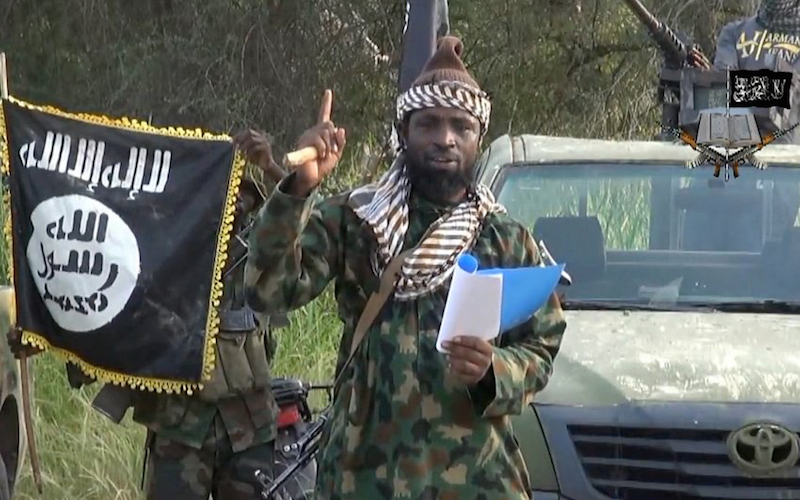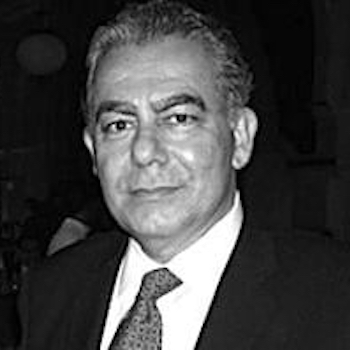
Will Democracy Survive in Nigeria?
Nigeria’s deadly insurgent group Boko Haram declared its allegiance to ISIS on March 7, following what was reported to be female suicide bombings killing over 50 in Maiduguri. Much like ISIS, the equally nihilistic Boko Haram appears to be edging closer to its own caliphate in northern Nigeria.
In light of increasing violence the long awaited Nigerian elections have been postponed six weeks, now scheduled for March 28. Nigeria’s 170 million citizens have time to contemplate their choice of leadership before heading to the polls. The result could very well spell the erosion of the democratic process in one more African country. The two main presidential candidates have a lot on their plates as Boko Haram continues to wreck havoc killing innocent civilians in the north, corruption runs rampant and the currency, the naira, has plummeted by 20% due to falling oil prices.
Recent polls indicate incumbent Goodluck Jonathan of the People’s Democratic Party (PDP) and the All People’s Congress (APC) candidate, ex-military dictator General Muhammadu Buhari, are running neck and neck. Whatever the outcome, these two men will have to provide solutions to the country’s problems and lead Nigeria on a path towards becoming a strong regional force.
The invisible hand
For his part, President Goodluck Jonathan has been the subject of much criticism in recent months for his inability to counter the Boko Haram insurgency, which was responsible for over 6,000 civilian deaths in 2014 alone, and has seized entire towns, schools, military bases and churches as it seeks to establish an ISIS-inspired caliphate in the country. The delayed election date has given some hope that the army will succeed in halting Boko Haram’s gains and regain territory in the northeast of the country, but as the situation stands now, the group seems set to disrupt an electoral process that its ideology does not support.
Meanwhile, Jonathan’s critics have been quick to point out the President’s perceived failure to root out corruption among his own ranks, and the swiftly shrinking governmental budget due to a collapse in the price of oil.
Nigeria remains dependent on oil for approximately 75% of its revenues and 90% of exports. Today, Nigeria’s budget outlook looks bleak, with external reserves hemorrhaging by almost $12 billion last year.
However, presiding over one of the most unstable periods in Nigeria’s history, many appear to have forgotten the reforms put forth by the Jonathan administration. Under his rule, Jonathan has successfully reformed the agricultural sector, invested in education, and restored the railways and road networks, overall instilling a period of optimism about the country’s economic future.
The ghosts of “Buharism”
With promises to defeat Boko Haram’s insurgency and root out corruption in Nigeria with an iron fist, Buhari has thus far been successful in capitalizing on Jonathan’s misfortune. However, despite claims that he may be the first opposition candidate to win an election since the reestablishment of democracy in Nigeria in 1999, Buhari’s previous attempt at governance casts significant doubt over his democratic credentials.
Coming to power after a military coup in 1983, Buhari’s most enduring legacy is his campaign against indiscipline, described by human rights groups as a “regime of crushing political dissent and installing harsh military values into civilian life.” He detained and jailed thousands of political opponents without trial, used secret military tribunals to try and execute individuals for crimes that were not capital offences, banned political meetings and freedom of speech, threatening media outlets who engaged in criticism of his rule. By forcing the army to patrol the streets of the country and demanding that people form strict queues outside public transport, Buhari gave “Nigerians the feeling that they were living under an inflexible regime which spread fear.”
Similarly, his economic record left much to be desired, and while he is known to be one of the least corrupt politicians in the country, his economic policies were nothing short of a disaster. To tackle currency depreciation, he made attempts to fix prices and installed a ban on certain “unnecessary” imports. As a result, Nigeria’s GDP per capita contracted by 33 percent in two years, living standards fell, prices rose, and businesses closed leading to high unemployment
Democracy under fire
Buhari has prided himself on his military background to whip Nigeria back into shape, but will likely sacrifice democracy in the name of security and order. Jonathan, on the other hand, made clear after his election in 2011 that “I am not a lion, I am also not a general. I can change this country without those traits.” With the election on the horizon, Nigerians need to think long and hard about which candidate will succeed in transforming Nigeria into a prosperous and democratic African nation.
